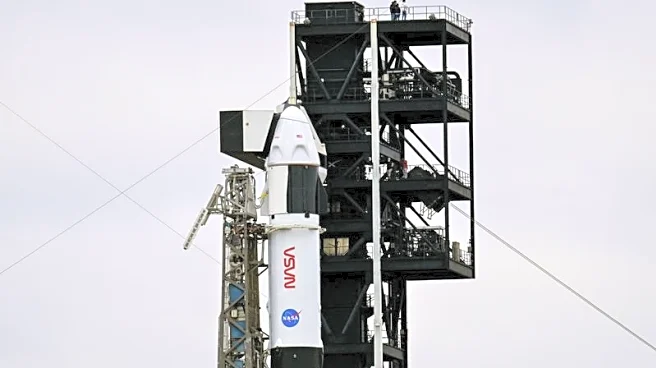What's Happening?
The U.S. Treasury Department has announced new sanctions targeting Russia's largest oil companies, Rosneft and Lukoil, in response to Russia's ongoing conflict with Ukraine. These sanctions are part of
a broader strategy by President Trump to pressure Russia into ceasing its military activities. The sanctions aim to cut off significant financial resources that fund the Kremlin's military operations. Despite the ongoing war and economic challenges, Rosneft and Lukoil remain two of the largest companies on the Moscow Stock Exchange, each valued at over $50 billion. The sanctions are intended to disrupt Russia's oil sector, which is a major source of revenue for the country.
Why It's Important?
The sanctions are a critical component of the U.S. strategy to influence Russia's actions in Ukraine. By targeting key economic assets, the U.S. hopes to weaken Russia's financial ability to sustain its military operations. The sanctions also serve as a message to international allies, encouraging them to join the U.S. in applying pressure on Russia. The impact of these sanctions could extend beyond Russia, affecting global oil markets and potentially leading to higher energy prices worldwide. The move highlights the U.S.'s commitment to using economic tools to achieve foreign policy objectives.
What's Next?
The sanctions are expected to have immediate effects on global oil prices, with potential long-term implications for international energy markets. Countries that rely on Russian oil may need to seek alternative suppliers, which could lead to shifts in global trade patterns. The U.S. may also consider additional measures if the current sanctions do not lead to a resolution of the conflict. The situation remains fluid, with potential diplomatic and economic developments that could influence the outcome of the sanctions.










